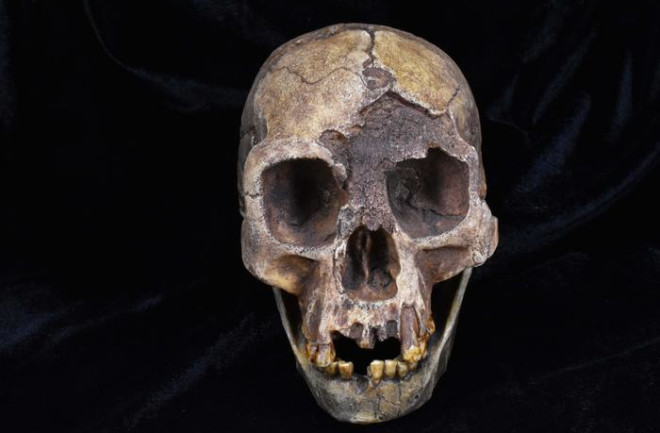In evolution, competition is thought to be a zero-sum game. One species adapts and survives. Another doesn’t and dies off. A new study in Nature Ecology & Evolution posits that human ancestors might be an exception.
Conventional wisdom in evolutionary theory has held that climate has driven the rise and fall of various hominin species. In most vertebrates, interspecies competition also plays an important role. That role has been discounted in human ancestors, according to the study.
“We have been ignoring the way competition between species has shaped our own evolutionary tree,” said Laura van Holstein, a University of Cambridge archeologist and author of the paper, in a press release. “The effect of climate on hominin species is only part of the story.”
Competition in Early Hominins
Van Holstein created a database of 385 known hominin species — from Australopithecus sediba to Homo floresiensis and noted the dates when they lived. The researchers used a statistical analysis model to investigate how competition played a role in human ancestors’ evolution.
Van Holstein found that in many early hominins — as in other mammals — separation into other species increases, then flatlines, at which point extinction rates start to ramp up.
But when she looked at the later “Homo” groups of hominins, van Holstein noticed a finding she called bizarre. Her analysis showed that competition between Homo species appeared to result in even more species.
"This is almost unparalleled in evolutionary science," van Holstein said.
Her analysis explains why the hominin fossil record can sometimes appear uneven. Several more hominin species than previously assumed were likely co-existing, and potentially competing. She added that the fossil record, by itself, can’t fully explain separation into species, because it relies somewhat upon chance — the finding of a particular fossil that pinpoints a particular species to a certain time and place.
“The earliest fossil we find will not be the earliest members of a species,” said van Holstein.
Read More: Humans Evolved From A Common Ancestor That Appeared 6 Million Years Ago
Adaptive Behavior
So why the divergence? Later Homo sapiens became ecosystem engineers, according to the paper. Learning how to make and use tools and to build fires gave later species adaptive benefits that could improve quicker than any evolutionary change.
“Adoption of stone tools or fire, or intensive hunting techniques, are extremely flexible behaviors,” van Holstein said. “A species that can harness them can quickly carve out new niches, and doesn’t have to survive vast tracts of time while evolving new body plans.”
Read More: An Introduction to the History of Human Evolution
Article Sources
Our writers at Discovermagazine.com use peer-reviewed studies and high-quality sources for our articles, and our editors review for scientific accuracy and editorial standards. Review the sources used below for this article:
Nature Ecology & Evolution. Diversity-dependent speciation and extinction in hominins
Laura van Holstein. University of Cambridge archeologist
Before joining Discover Magazine, Paul spent over 20 years as a science journalist, specializing in U.S. life science policy and global scientific career issues. He began his career in newspapers, but switched to scientific magazines. His work has appeared in publications including Science News, Science, Nature, and Scientific American.

